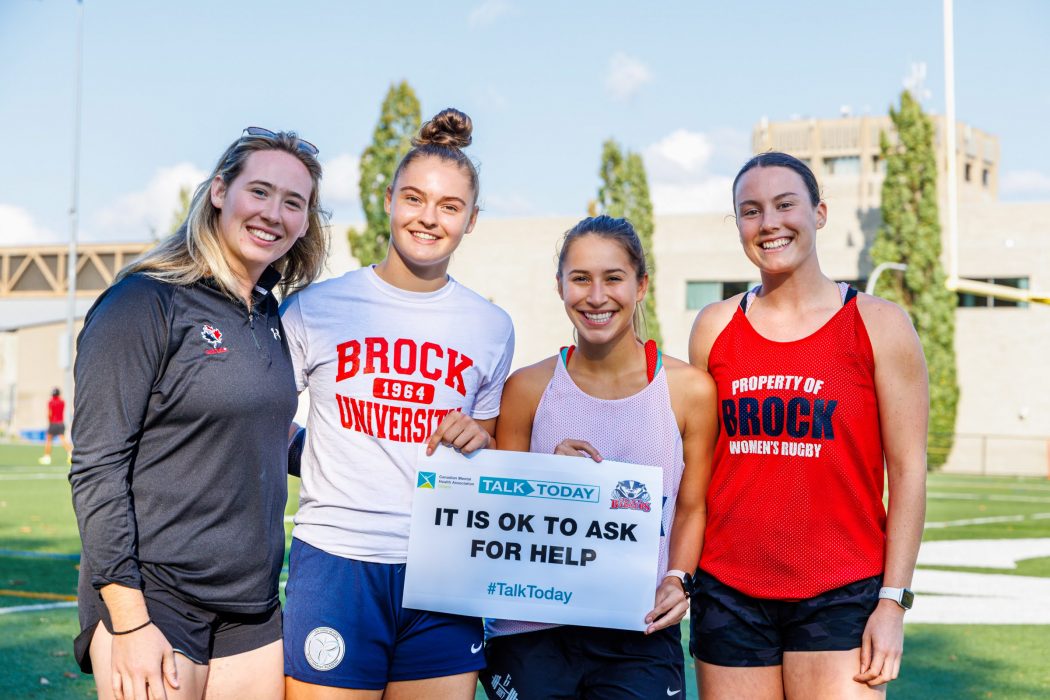Brock University has partnered with Canadian Mental Health Association (CMHA) Niagara to implement a groundbreaking mental health initiative.
During the Fall Semester, Brock Sports collaborated with CMHA Niagara to test CMHA’s Talk Today program, a leading mental health initiative for amateur sports in Canada, with varsity student athletes.
“Our innovative partnership with CMHA Niagara introduces the Talk Today program, addressing the mental health challenges in varsity sports,” said Brock Sports and Recreation Executive Director Melissa Krist. “This collaborative effort emphasizes our commitment to evidence-based mental health promotion.”
To highlight this significant partnership and raise awareness about mental health in sports, the Badgers are hosting a free awareness event on Thursday, Nov.16 from 10 a.m. to 2 p.m. in the Walker Sports Complex near the Hungry Badger.
Representatives from CMHA Niagara and the Student Wellness and Accessibility Centre (SWAC) will be present to provide information about the Talk Today program as well as mental health services offered by Brock and CMHA.
Two Brock varsity teams involved in the research project will share their experiences with the Talk Today program and discuss mental well-being in sports.
Over 50 student-athletes from Brock’s rugby and soccer teams actively participated in the Talk Today pilot this fall. As part of the program, the teams underwent mental health and suicide prevention education, and each student-athlete was paired with a mental health coach for ongoing support throughout the season.
This support comes from both on-campus resources, such as SWAC, and off-campus assistance provided by a CMHA Niagara staff member.
The collaboration extends to research, with CMHA Ontario and CMHA Niagara partnering with Professor of Kinesiology Philip Sullivan and graduate students Mishka Blacker and Joshua Celebre.
Together, they are continuing to evaluate the program’s effectiveness, focusing on its impact on mental health literacy and help-seeking behavior.
The research is supported by grant funding from Mitacs, a non-profit national research organization, emphasizing the commitment to evidence-based practices in mental health promotion.
